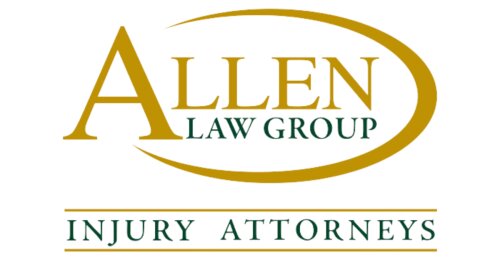Best Personal Injury Lawyers in Chicago
Share your needs with us, get contacted by law firms.
Free. Takes 2 min.
List of the best lawyers in Chicago, United States
About Personal Injury Law in Chicago, United States
Personal Injury Law in Chicago, Illinois, involves litigation related to injuries sustained due to the negligence or intentional act of others. The injury could result from various occurrences such as traffic accidents, workplace accidents, slips & falls, medical malpractice and product liability. Often, the victim seeks to recover financial compensation for damages like medical expenses, loss of income, property damage and emotional distress.
Why You May Need a Lawyer
If you or your loved one has suffered personal injury, a competent lawyer can help you negotiate better settlement with the at-fault party or their insurance company. A lawyer can prove instrumental in circumstances where injuries are severe or permanent, or when there are disagreements about who is at fault. Complex cases such as medical malpractice or wrongful death may also necessitate professional legal help to navigate the intricate legal procedures.
Local Laws Overview
Illinois's personal injury laws are crucial, and understanding them is important when filing a lawsuit. Key aspects include the "contributory fault" rule, where you can be barred from recovering compensation if you're found 51% or more at fault. Also vital is the "statute of limitations" which sets a two-year limit from the date of injury for filing a claim. Understanding how these laws can impact your case and compensation is pivotal, making legal advice valuable.
Frequently Asked Questions
What kind of compensation can I expect in a Personal Injury case?
In general, compensation can cover medical bills, lost wages, property damage, pain and suffering, and sometimes punitive damages, which aim to punish and deter particularly egregious conduct.
How long does a Personal Injury claim take?
The duration of your case usually depends on the severity of the injury, the clarity of fault, and the defendant's willingness to settle. It can take anywhere from several months to a few years.
What is contributory fault?
Contributory fault in Illinois is a rule that reduces your claim's value in proportion to your share of blame for your injury. If you're more than 51% to blame, you cannot recover any compensation.
What happens if I miss the two-year filing deadline?
If you miss the statutory deadline, your case will most likely be dismissed unless your situation falls into one of the very limited exceptions that could extend the time limit.
Do I have to go to court for my Personal Injury claim?
Not all personal injury claims go to court. Many are settled out of court, between the injured party and the negligent party's insurance company. However, if a fair settlement cannot be reached, it may be necessary to go to court.
Additional Resources
You may find the Illinois Department of Insurance, Illinois Workers' Compensation Commission or the Illinois Legal Aid Online as useful resources that provide valuable information pertaining to personal injury law. You can also refer to the Chicago Bar Association for a list of recommended personal injury attorneys.
Next Steps
If you seek representation, gather all relevant information pertaining to your case including medical records, police reports, and any evidence of the incident. Contact a trusted and experienced personal injury attorney who can guide you through your claim. Your attorney can help you understand your options, negotiate with insurance companies, and if necessary, represent you in court.
Lawzana helps you find the best lawyers and law firms in Chicago through a curated and pre-screened list of qualified legal professionals. Our platform offers rankings and detailed profiles of attorneys and law firms, allowing you to compare based on practice areas, including Personal Injury, experience, and client feedback.
Each profile includes a description of the firm's areas of practice, client reviews, team members and partners, year of establishment, spoken languages, office locations, contact information, social media presence, and any published articles or resources. Most firms on our platform speak English and are experienced in both local and international legal matters.
Get a quote from top-rated law firms in Chicago, United States — quickly, securely, and without unnecessary hassle.
Disclaimer:
The information provided on this page is for general informational purposes only and does not constitute legal advice. While we strive to ensure the accuracy and relevance of the content, legal information may change over time, and interpretations of the law can vary. You should always consult with a qualified legal professional for advice specific to your situation.
We disclaim all liability for actions taken or not taken based on the content of this page. If you believe any information is incorrect or outdated, please contact us, and we will review and update it where appropriate.











